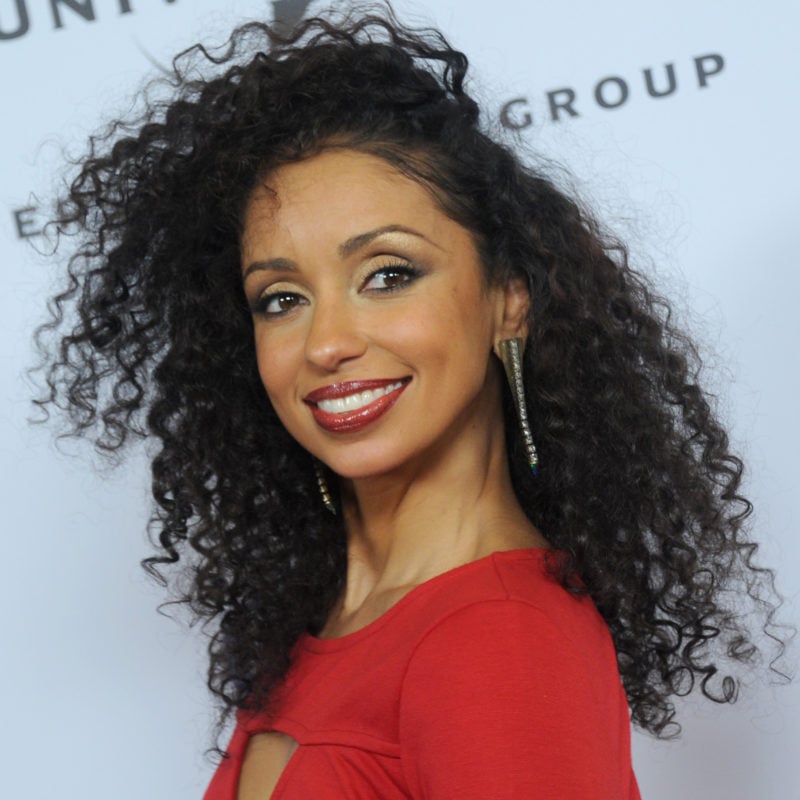We Caught Up With R&B Singer Mya 2023 to Chat Hair and Philanthropy
“The entertainment [industry] often requires you to show up as a character.”
“There’s still a stigma around the topic of AIDS,” says R&B singer Mya over the phone. “It’s best to lead with love but also information, awareness, education and community in order to achieve breakthroughs.” The Grammy Award-winning singer, who has been a long-time advocate for LGBTQ+ rights and the fight against AIDS, will be performing at the Bloor Street Entertains after-party at the Four Seasons Hotel Toronto, in support of the Canadian Foundation for AIDS Research, later this week.
When Mya dials in, she’s one week away from her Toronto show and is calling from Germany, where she’s set to hit the stage before making her way to Canada. This year, the “Case Of The Ex (Whatcha Gonna Do)” singer celebrates 25 years in the music industry, and to commemorate the milestone, she launched deluxe editions of both her Mya and Moodring albums.
When Mya’s eponymous debut album dropped in 1998, the young artist appeared on the album cover sporting a true-to-the-’90s brown lip, with a cascade of curls peaking out beneath a brown bucket hat. When I ask if she’d always embraced her curls, she tells me her hair was once a source of insecurity, as she was often teased about her “different” curly texture.
“I worked so hard to try to figure out what products to use to ‘tame’ my hair because it was considered, at the time, unruly,” she explains. As the budding musician found a home in the arts, she says she felt “uplifted” about who she was and how her hair looked. “I eventually embraced my hair in my later teen years, when I was around healthier environments through the arts. We weren’t focused on vanity and exterior but more so a common goal,” Mya explains. “Being around healthy, positive-minded individuals that aren’t focused on vanity usually comes with less insecurity and ignorance.”
These days, Mya uses her hair as a form of self-expression. “Hair speaks volumes. Literally,” she laughs. “As an entertainer, I’m conveying art, and art is spoken in so many different ways and mediums, from colour palettes to hairstyles.”
“The entertainment [industry] often requires you to show up as a character that you may not always be in your personal life,” says Mya. One of her favourite looks to sport on stage? A classic ponytail that keeps her hair out of her face. From loc and braid ponytails to natural and drawstring ponies in a variety of hues, lengths, and textures, Mya has mastered the art of the performance pony. “It’s my go-to, and I don’t necessarily need a hairstylist for it. It keeps the budget down,” she laughs.
Though folks often looks to celebrities for hair inspiration, Mya feels that many trends sparked by stars over the years stem from culture and reference things that have long been documented in history books and art. “Then, we see these looks show up, possibly in a music video, and we take it and make it our own.”
As the natural hair movement has progressed, the singer says social media has sparked healthy hair conversations between women around the world. Mya says with this conversation comes increased self-awareness. “We sometimes try to achieve an unrealistic, ever-changing standard of beauty, when really, the hair that we were born with is ‘good hair’,” says Mya, who performed at Frizz Fest — a natural beauty festival designed to promote self-love through hair — this summer.
Mya’s concerns with hair health and overall wellness are a natural extension of her commitment to the vegan lifestyle. She first went vegan in 2014, and launched her own vegan transition guide for fans in 2018. In 2017, she walked the Grammy Awards red carpet in head-to-toe, cruelty-free attire. In the years since, she has remained vocal about her lifestyle choices via social media.
After 25 years in the spotlight, Mya continues to prove, through a plethora of philanthropic endeavours, that she is much more than just a musician.







